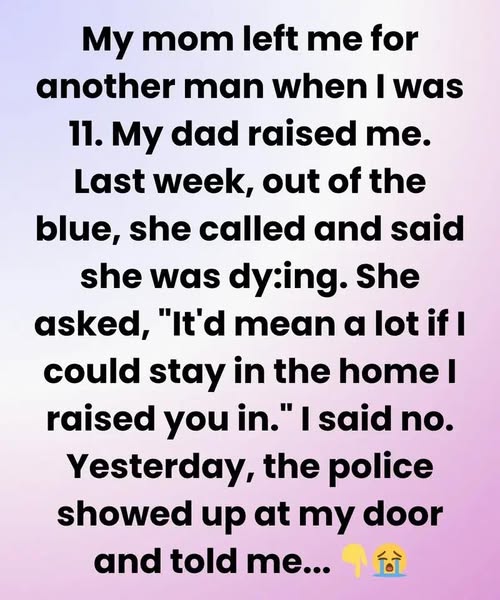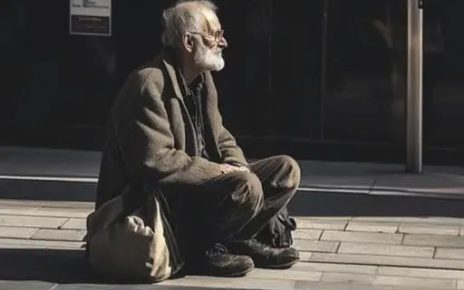When my mother showed up after years of absence, the cops asked if I wanted them to move her along. She was thin, sick, and claimed she had only months left. She wanted to spend her final days in “the house she raised me in,” though she’d abandoned us when I was eleven. I told her no, but bought her a week in a hotel. Despite everything, I couldn’t bring myself to leave her in a car.
She began calling—for rides, for tea, for comfort on dark nights. I kept my guard up until her frailty chipped it away. Then a lawyer’s letter shattered me: years ago, she had forged papers tying my house to her name, and debt collectors were circling. At the hospital she admitted it, but pressed an envelope and a key into my hand. Inside her letter was a confession and proof of years of secret saving—$42,000 in cash and bonds.
I used it to clear the debt and secure the deed. For once, she had done something right. But when I rushed back to tell her, she had already passed. Grief hit harder than I expected—not just for her, but for the little boy who once watched the window for a mother who never came. I buried her beside my father, choosing to let it end with grace rather than bitterness.
Walking through the house my dad built, I realized forgiveness isn’t saying what she did was okay. It’s putting down a weight you’ve carried too long. My mom left me with pain, but in the end, she also gave me one final gift: a choice to keep love, the home, and peace—and let the rest go.




